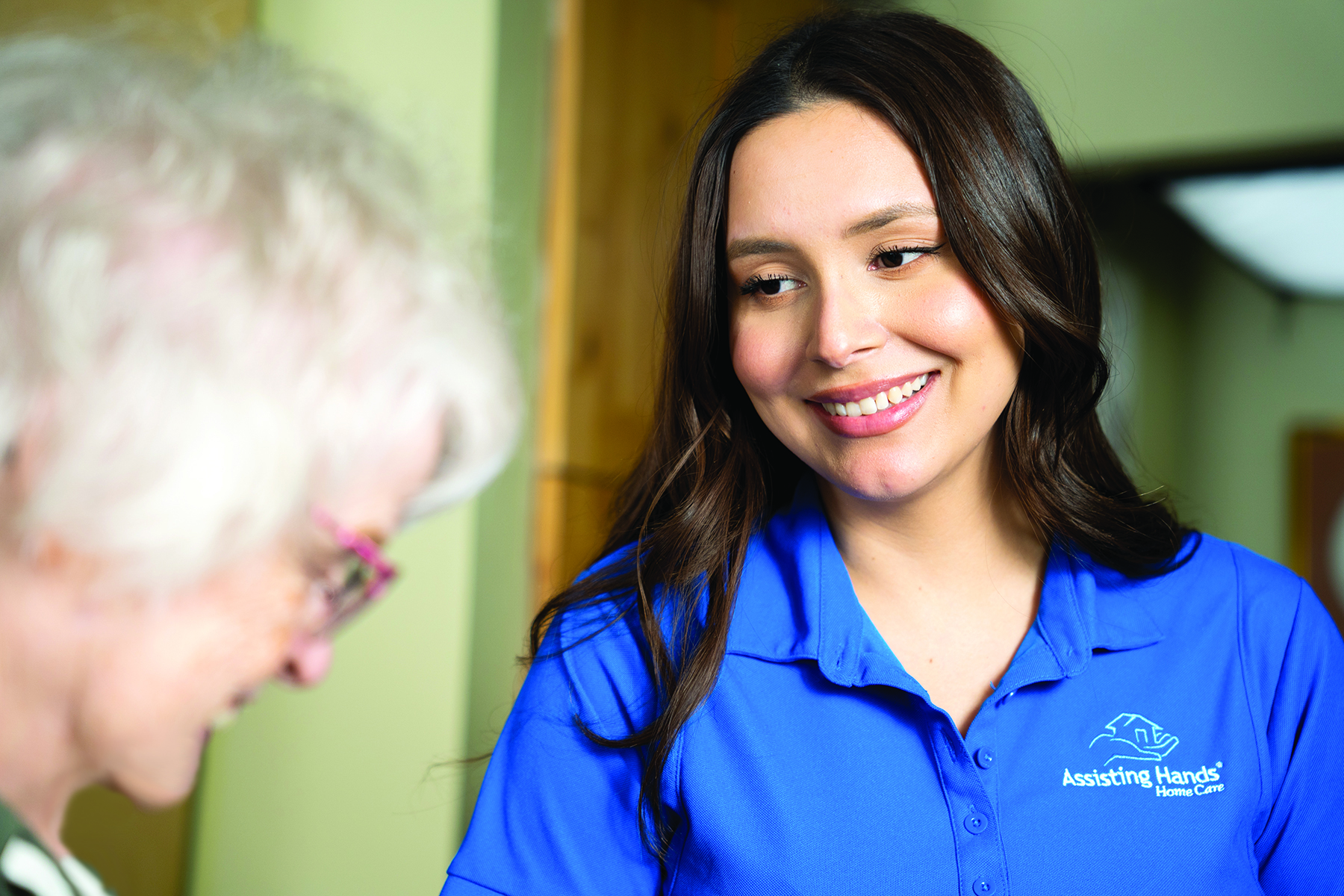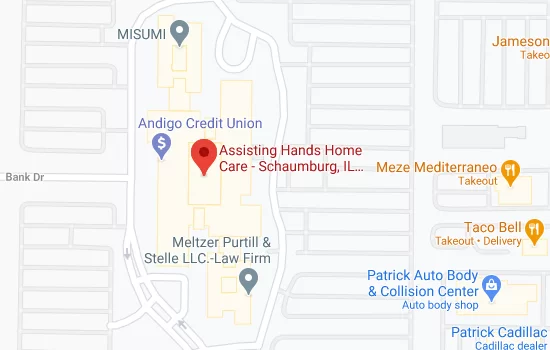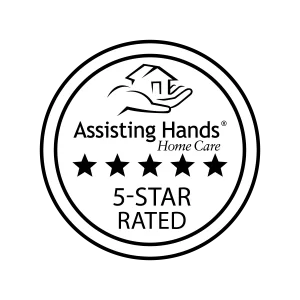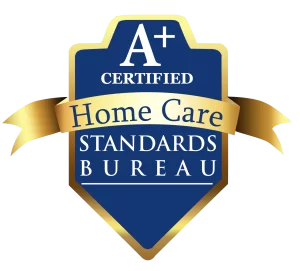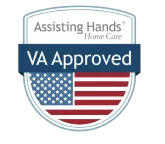
Seniors often take one or multiple prescription medications to help them ward off symptoms of disease and manage a condition. But forgetting to take these critical drugs is a common issue that affects their health. Here’s how caregivers can help their aging loved ones take their medications on schedule.
Nearly 90 percent of older adults take at least one prescription medication and about 80 percent take two prescription drugs regularly. The Merck Manual also reports that 36 percent of seniors take at least five prescription medications on a routine basis. Add supplements to the mix and the rate increases.
Managing one or more drugs can be difficult for seniors who are prone to forgetfulness. Memory issues are likely to develop with age. Dementia can also strike as people grow older. When memory problems occur, seniors can forget to take their pills and suffer ill health.
Severe consequences can arise when older people forget to take the medications they are prescribed. Abruptly going off medications can lead to withdrawal symptoms. Or seniors might suffer a fall, be hospitalized or overdose on the pills when they attempt to make up for missed doses.
How do caregivers help seniors who forget to take their medications?
Caregivers should first know what drugs the senior is taking. These include not only prescription medications but over-the-counter medicines, herbal supplements, vitamins, or home remedies. Find out the doses, too; some drugs should be taken once a day, while others twice.
It’s also critical for caregivers to understand how the senior’s medications are correctly taken. For example, some prescription drugs require that aging patients take them on an empty stomach. Others work best when taken with a full glass of water.
1. Use a smart pill organizer
Pill organizers help seniors take their medications at the right time. Smart pill boxes light up with tiny LED lights to prompt the senior to take their medicine. The device also sends an email or a push notification to the senior’s phone when it’s time to take the medication.
2. Designate a space for medications
Tucking away critical medications in the bathroom medicine cabinet may cause seniors to forget they are there. Remember the adage, “out of sight, out of mind.” Instead, designate a space, such as a clear area on the kitchen counter, for the drugs. Keep the contact information of doctors there, too.
3. Hang visual reminders
Visual reminders help seniors who forget to take their medications. Caregivers can take simple measures, like handwriting reminders on the wall calendar or in a day planner. Automated text or email alerts are equally helpful in prompting tech-savvy seniors to take their medications.
4. Keep a medication log
Medication management can be challenging when older people take multiple drugs. In such situations, keeping a medication log is helpful. The caregiver can check off which medications the senior took and when, thereby promoting confidence that they took the right drugs at the right time.
5. Use technology
Harness today’s technology to ensure aging loved ones take their pills on time. Use smart home assistants, like Google Home or Amazon Echo, to issue reminders. Alternately, set an alarm on a digital clock, computer, or other device to give seniors their daily medication reminders.
6. Establish a routine
Seniors usually know what time they will wake up, brush their teeth and bathe. Make medications a part of this daily routine to prevent them from forgetting to take them. This tactic is especially appreciated by older adults living with dementia, as they thrive under routine.

7. Take medications with meals
Some medications must be taken with food. Keep track of medications by encouraging the senior to take them with breakfast, lunch, or dinner. Leave a cup with the sorted medications next to the lunch plate so that the senior can easily take them with their meal.
8. Label medicine bottles
Pill bottles can be confused, as they look similar. Caregivers, however, can prevent confusion by labeling the senior’s medication bottles. Adhere rings of colored tape to differentiate morning and evening pills. Stick labels with the drug name in large print to help the senior correctly identify it.
9. Coordinate with a support team
Family caregivers may not always be available to provide medication reminders each day, which makes it important to coordinate with others. Ask family members to visit the senior or provide texts, emails, or reminder calls to ensure they take their medications on schedule.
10. Hire a professional caregiver
When relatives are too busy, families can rely on professional caregivers to provide timely medication reminders. These professionals are experienced in managing elder care, which includes ensuring they take their prescription drugs in the right doses and on time each day.
Managing multiple medications or even one can be tricky for seniors who are prone to forgetfulness. But a compassionate caregiver will remind the elderly individual to take their medicines to promote optimum health. Families find such caregivers at Assisting Hands Home Care.
Our nationally recognized home care agency is staffed with dedicated caregivers who prioritize the health and well-being of the seniors in our care. We offer a range of in-home care services to give older adults the opportunity to stay independent and age in place near friends, family, and their community.
Non-medical services include timely medication reminders, grocery shopping, healthy meal preparation, and light housekeeping to keep the home clean and comfortable. Clutter is removed to prevent falls. We provide respectful assistance with personal hygiene tasks, like bathing, dressing, toileting, and grooming.
We’re also pleasant companions to the seniors in our care, keeping them socially engaged through card games, conversations, outings to local destinations and hobbies. Transportation is provided to places like the doctor’s office for medication adjustments or the senior center for social opportunities.
Assisting Hands Home Care provides the quality senior care your aging loved one needs. From dementia care to respite care, we offer flexible options to the elderly living in Schaumburg,, IL and the surrounding areas.
Schedule your complimentary in-home consult today at (224) 258-0736 and promote the senior’s overall health, comfort, and well-being.

Daniela has master’s degree in electronic engineering with a pedagogical specialty and master’s degree in marketing management.
After completing her schooling, Daniela worked at a hospital for 6 years as the Director of Business Marketing Development and Public Relations.
Starting Assisting Hands Home Care
Daniela spent more than 14 years as the Assistant Vice President of a national bank before becoming a co-owner of Assisting Hands Home Care of Schaumburg.
Her background in public relations and marketing along with her personal experience caring for her mother motivates Daniela to be passionate about helping families in the Schaumburg, IL area find exceptional caregiving services for their elderly loved ones.
Besides providing home care, Daniela enjoys giving back to the community in her free time, supporting various events at St. Peter Parish in Geneva, IL such as fundraising, school projects, charity events, and more. She also enjoys volunteering for the Humanitarian Service Project in Carol Stream, IL. This organization provides seniors with meals as well as food and supplies for children living in poverty.


